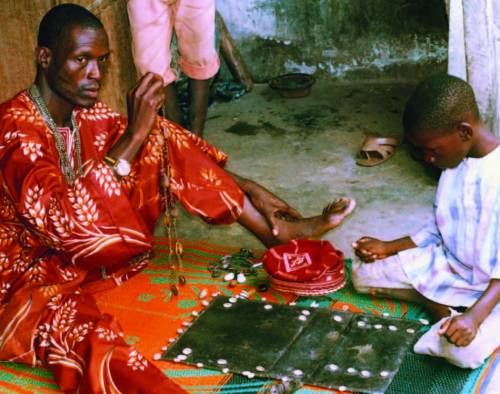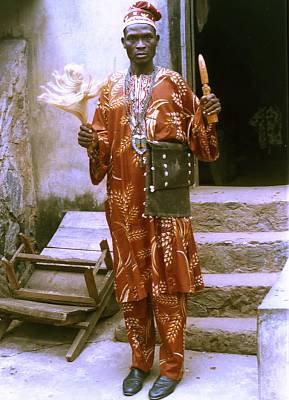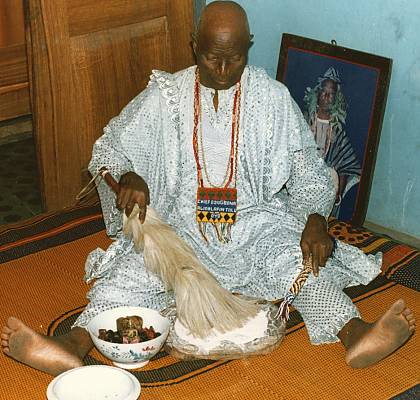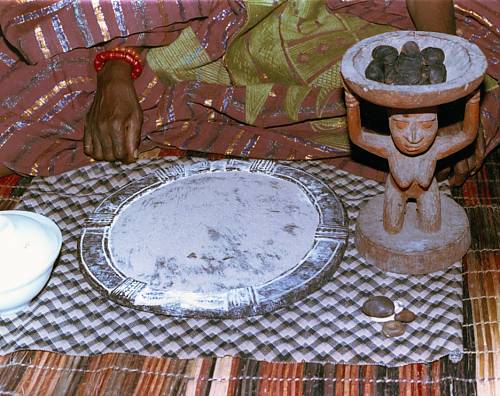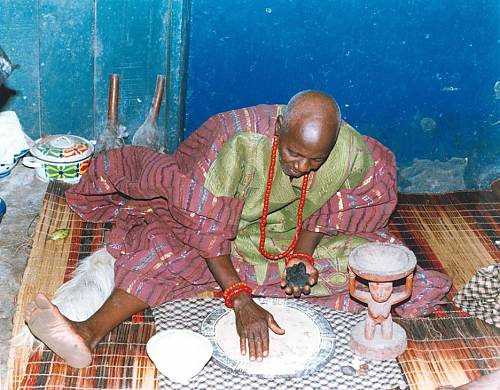Ifa divination system
Inscribed in 2008 (3.COM) on the Representative List of the Intangible Cultural Heritage of Humanity (originally proclaimed in 2005)
The Ifa divination system, which makes use of an extensive corpus of texts and mathematical formulas, is practiced among Yoruba communities and by the African diaspora in the Americas and the Caribbean. The word Ifa refers to the mystical figure Ifa or Orunmila, regarded by the Yoruba as the deity of wisdom and intellectual development.
In contrast to other forms of divination in the region that employ spirit mediumship, Ifa divination does not rely on a person having oracular powers but rather on a system of signs that are interpreted by a diviner, the Ifa priest or babalawo, literally “the priest’s father”. The Ifa divination system is applied whenever an important individual or collective decision has to be made.
The Ifa literary corpus, called odu, consists of 256 parts subdivided into verses called ese, whose exact number is unknown as they are constantly increasing (there are around 800 ese per odu). Each of the 256 odu has its specific divination signature, which is determined by the babalawo using sacred palm-nuts and a divination chain. The ese, considered the most important part of Ifa divination, are chanted by the priests in poetic language. The ese reflect Yoruba history, language, beliefs, cosmovision and contemporary social issues. The knowledge of Ifa has been preserved within Yoruba communities and transmitted among Ifa priests.
Under the influence of colonial rule and religious pressures, traditional beliefs and practices were discriminated against.The Ifa priests, most of whom are quite old, have only modest means to maintain the tradition, transmit their complex knowledge and train future practitioners. As a result, the youth and the Yoruba people are losing interest in practising and consulting Ifa divination, which goes hand-in-hand with growing intolerance towards traditional divination systems in general.

